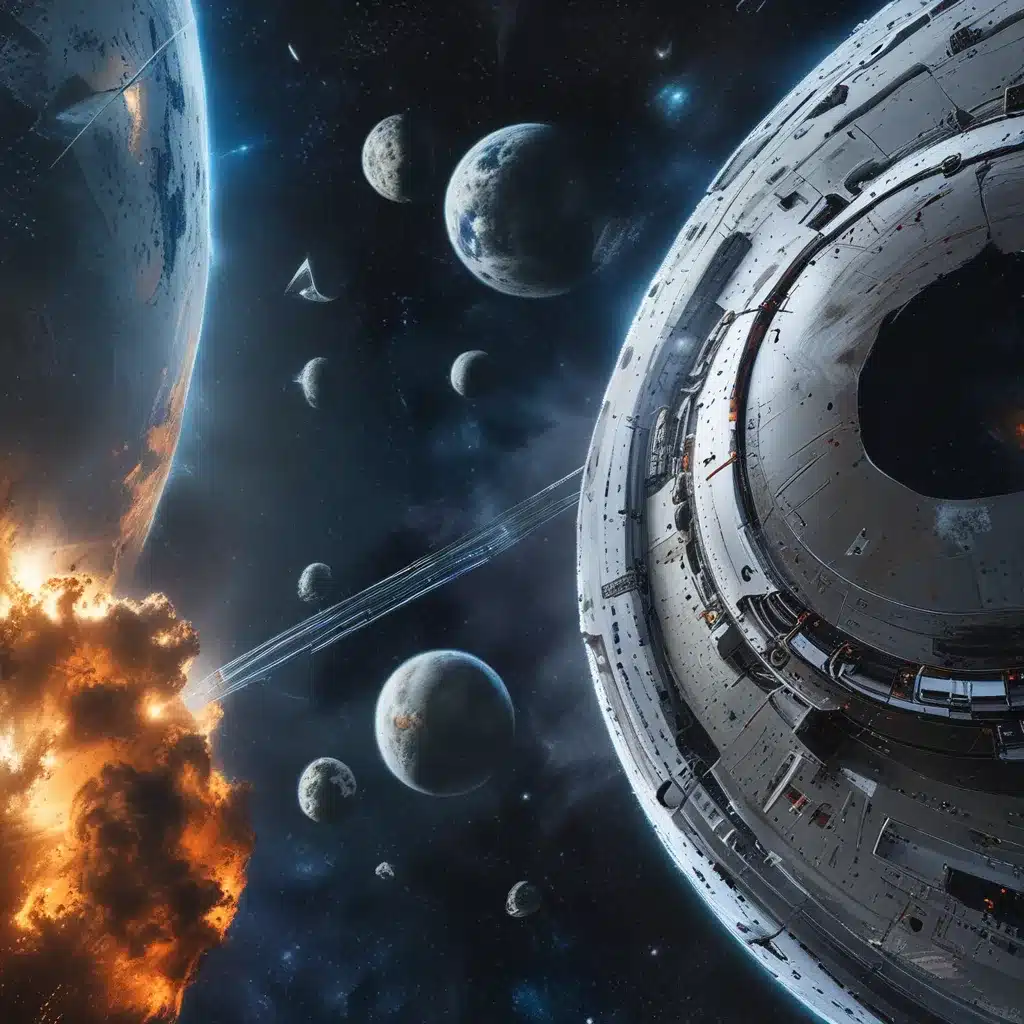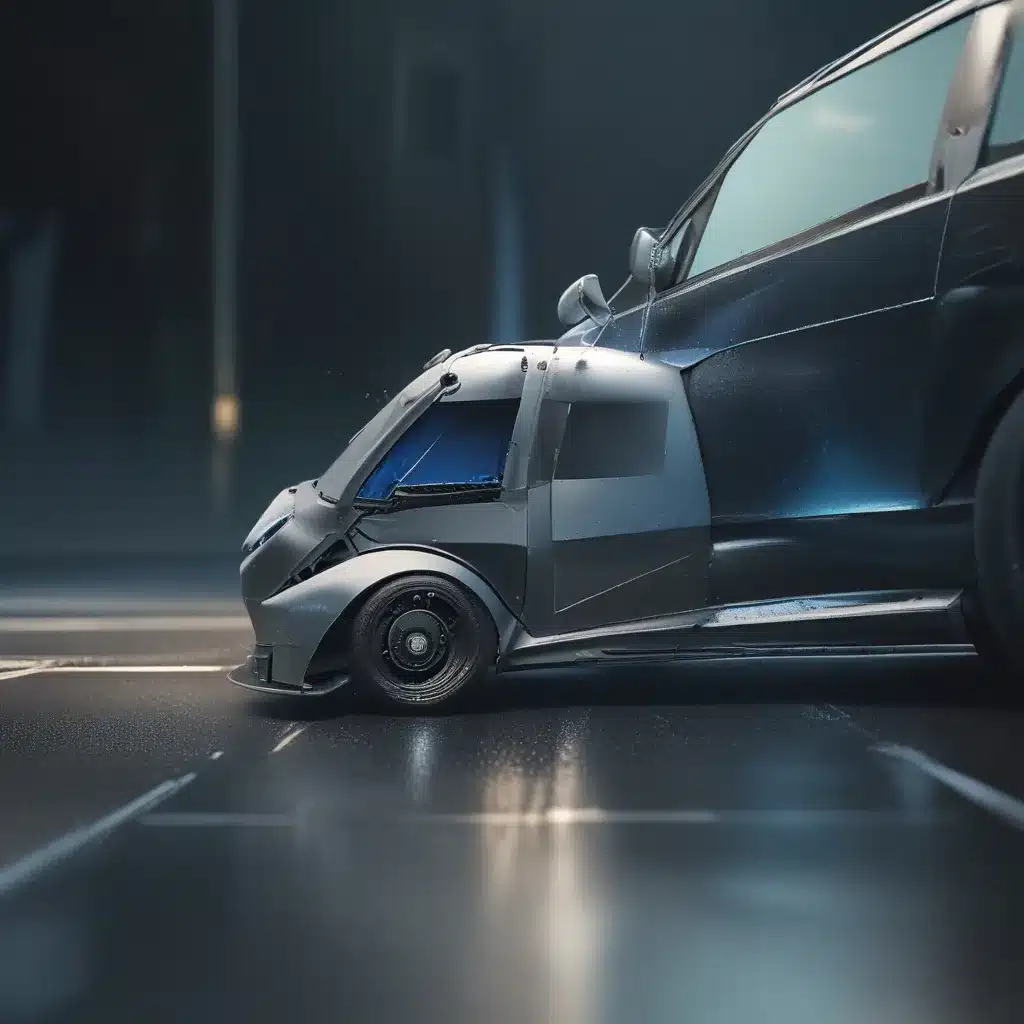Survival of the Fittest…or the Luckiest?
Humanity has always been a restless bunch, constantly striving to push the boundaries of what’s possible. From scaling the highest peaks to plumbing the deepest oceans, we’ve shown an insatiable appetite for exploration and conquest. But now, our sights are set on a new frontier – the vast expanse of space.
The idea of colonizing other worlds has captivated the imaginations of visionaries like Elon Musk and Jeff Bezos. They see it as a way to ensure the survival of our species, a “backup plan” in case Earth becomes uninhabitable. After all, if the dinosaurs had had the option to hop on a rocket and start anew on another planet, maybe they’d still be with us today.
But is this really a viable solution? Or is it just the latest iteration of humanity’s delusions of grandeur? As I delve into the arguments for and against this cosmic insurance policy, I can’t help but wonder – are we being visionaries, or just hopelessly optimistic?
The Allure of the Final Frontier
The idea of establishing a human foothold on another planet is undeniably captivating. Just imagine it – a thriving colony on Mars, or perhaps even the Moon, where humanity can start fresh, away from the turmoil and uncertainty of our home planet. It’s a dream that’s captured the public imagination for decades, fueling countless science fiction stories and blockbuster films.
And let’s face it, we humans love a good backup plan. We insure our homes, our cars, our lives – why not our entire species? Elon Musk and Jeff Bezos certainly seem to think it’s a sensible idea. They’re pumping billions into their respective space companies, SpaceX and Blue Origin, with the goal of making interplanetary travel a reality.
And who can blame them? With the growing threats of climate change, nuclear war, and pandemics, the prospect of having a “lifeboat” for humanity is undoubtedly alluring. If the worst were to happen on Earth, we could simply hitch a ride to our new home among the stars and start over.
The Harsh Realities of Space Colonization
But here’s the thing – as captivating as the idea of space colonization may be, the reality is far more daunting. According to experts, creating a self-sustaining colony on another planet is an incredibly challenging and expensive proposition. It’s not something that can be achieved in a matter of decades, as Musk and others have suggested.
In fact, Nick Beckstead, a program officer at the Open Philanthropy Project, estimates that it could take centuries to establish a truly self-sufficient colony, one that can truly serve as a “backup” for humanity. And even then, there’s no guarantee that such a colony would be able to withstand the harshest of catastrophes.
After all, as Cambridge University cosmologist Martin Rees points out, “Mars will be a more hostile environment than the top of Everest or the South Pole.” And that’s not even considering the countless other challenges, from maintaining a breathable atmosphere to securing a reliable food and water supply.
The Better Backup Plan
So, if space colonization isn’t the silver bullet we might hope for, what’s the alternative? According to the experts, the most effective way to ensure humanity’s survival might be to focus our efforts and resources here on Earth.
Beckstead suggests that investing in risk-mitigation efforts, such as studying the potential climate effects of nuclear war or improving pandemic preparedness, could be a much more practical and cost-effective approach. These initiatives may not be as exciting as building a Martian colony, but they could have a tangible and immediate impact on our ability to weather the worst-case scenarios.
And let’s not forget the potential threats that a space colony wouldn’t even protect us from, like advanced artificial intelligence. As the experts at the Machine Intelligence Research Institute warn, our problems won’t be solved simply by having a presence on another planet. The risk of being outmatched by powerful AI systems is one that no amount of space exploration can mitigate.
A Worthy Endeavor, but Not a Panacea
So, where does all of this leave us? Well, it’s clear that while the idea of colonizing space is undeniably exciting, it’s not the panacea for humanity’s woes that some may believe. It’s a long-term, high-risk, and incredibly expensive proposition that, at best, might only serve as a backup for a handful of the threats we face.
That’s not to say that space exploration and colonization aren’t worthy pursuits. They are, and they’ve already yielded countless benefits for humanity. But when it comes to ensuring our species’ survival, the experts seem to agree that our focus should be on more immediate, down-to-earth solutions.
As I reflect on all of this, I can’t help but wonder – if the dinosaurs had had the option to flee to another planet, would they have taken it? Or would they have realized that the real work lies in protecting the home they already had? It’s a question that, I suspect, will continue to captivate and divide us for years to come.
In the meantime, if you’re looking to support the long-term future of humanity, I’d encourage you to check out the work being done by the IT Fix team. They’re committed to using technology to tackle some of the world’s most pressing challenges, from climate change to global health. Who knows – maybe their efforts will one day be the key to our survival, right here on Earth.













